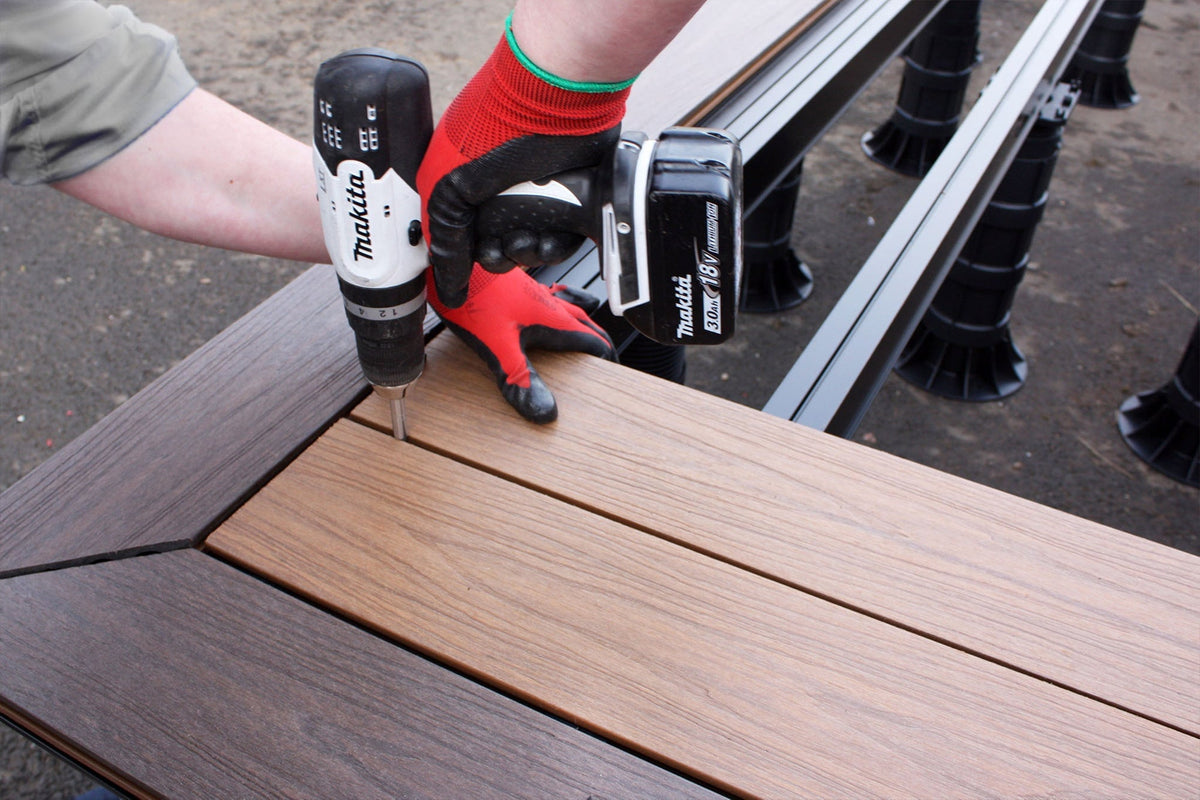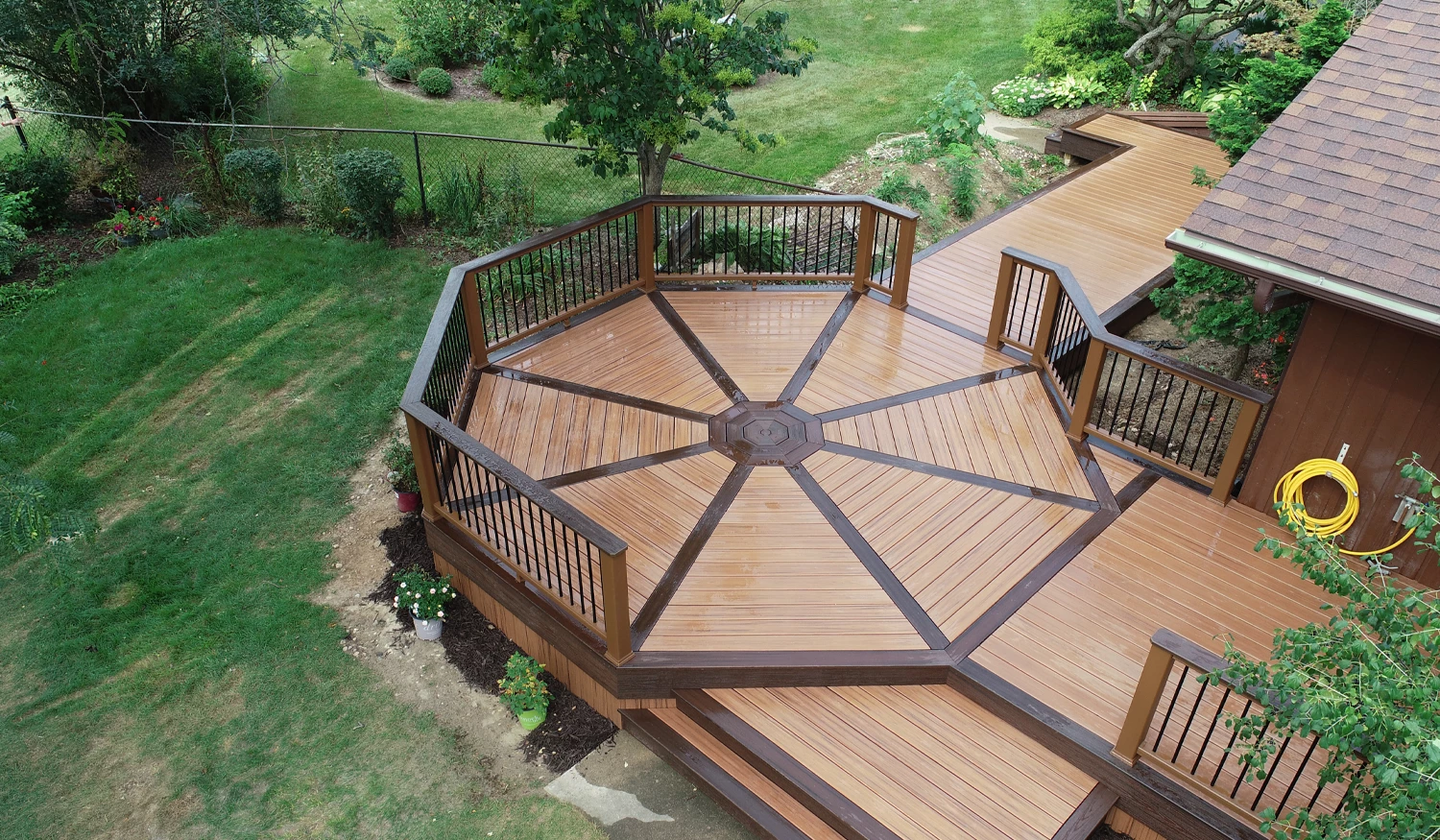Before summer arrives, consult with a skilled deck installer Austin to get your project moving.
Before summer arrives, consult with a skilled deck installer Austin to get your project moving.
Blog Article
Exactly how to Choose the Right Products for Your Deck Setup Job
Picking the ideal products for your deck installation job can seem daunting. There are numerous elements to consider, from longevity and maintenance to appearances and ecological influence. The option in between traditional wood and composite materials, each with its very own collection of advantages and disadvantages, can be especially tough. The trick is to stabilize your budget plan, design preferences, and lifestyle requires to develop a deck that will improve your outdoor area for years to come.
Comprehending the Different Types of Deck Materials
When embarking on a deck setup project, the selection of products becomes an essential decision. Composite materials, on the various other hand, are a mix of timber and plastic, offering toughness and resistance to weather components. By recognizing these differences, property owners can make an extra enlightened choice on the most appropriate deck material for their particular demands.
Assessing the Sturdiness and Maintenance Requirements of Deck Products
Examining the durability and maintenance needs of deck materials is an essential action in deck installment. Toughness entails the material's ability to stand up to severe weather conditions, damage, and its long life. Cedar and redwood are normally resistant to rot and insects, making them durable choices. On the various other hand, pressure-treated timber, while sturdy, might need more maintenance as a result of its susceptibility to cracking and buckling.
Understanding upkeep demands is similarly important. Some products call for routine sealing or discoloring to keep their appearance and withstand dampness damage, while others, like composite outdoor decking, require less maintenance. By reviewing these factors, one can choose the most suitable decking material, guaranteeing a balance in between resilience, upkeep requirements, and visual charm.
Price Analysis: Comparing Wood and Compound Decking
Although price might at first appear like a secondary issue, it is a significant factor when contrasting timber and composite outdoor decking. On the other hand, composite decking, while costlier initially, requires less maintenance, potentially decreasing long-term expenses. Possible deck proprietors have to consider their budget and desire to keep their decks when deciding between timber and composite outdoor decking.
Aesthetics and Style Versatility of Decking Products
While expense is a vital consideration, the visual appeal and style adaptability of outdoor decking materials likewise play a considerable role in the decision-making process. Various materials offer differing degrees of aesthetic charm. For instance, all-natural wood outdoor decking supplies a classic, timeless appearance, while composite materials offer a vast range of shades and textures to suit varied tastes and styles. In a similar way, style versatility refers to the capacity to form and control the outdoor decking product to fulfill details design requirements. Timber, for example, uses high layout flexibility because of its convenience of cutting and forming. Compound products, while less versatile in style, are still versatile enough for a lot of deck layouts. These factors, as a result, are important components in the choice of decking material.
Ecological Effect of Decking Products
When picking decking materials, one should think about not only aesthetics and toughness, yet likewise the environmental influence. It's essential to evaluate the sustainability of materials and discover recycled outdoor decking alternatives. Additionally, comprehending the prospective effect on local communities will ensure an extra eco liable option.
Examining Material Sustainability
In the realm of deck building, analyzing product sustainability is a vital action. This includes assessing the ecological influence of each prospective product, considering elements such as the energy needed for its production, its carbon impact, and its end-of-life disposal or recycling alternatives. Timber is a renewable resource, however unsustainable logging practices can lead to deforestation. Composite decking products usually incorporate wood and plastic, lowering the demand More Bonuses for new wood yet boosting dependence on fossil fuels. Light weight aluminum and various other steels may be a lot more durable and recyclable, however their removal and handling can be energy-intensive. Therefore, the option of decking materials need to balance functionality, visual appeals, price, and sustainability to ensure an accountable and resilient installment.
Recycled Decking Options

Composite decking is particularly preferred because of its resilience and convenience of maintenance. It's immune to rot, pests, and fading, making it a durable option. Recycled plastic outdoor decking, on the other hand, is extremely resistant and calls for marginal upkeep. While these materials may bring a greater first price, their long life and decreased ecological effect make them a smart financial investment for the eco-conscious home owner.

Effect on Local Ecosystems
While the benefits of utilizing recycled materials for outdoor decking can not be overstated, it's equally important to think about the wider environmental implications of these choices. Proper disposal of old decking is essential to lessening land fill waste. Basically, an eco-conscious deck project needs mindful product selection, lasting sourcing, and accountable disposal.
Making Your Final Choice: Tips for Choosing the Finest Deck Products
As the post transitions right into the subtopic of "Making Your Decision: Tips for Choosing the Best Deck Materials", it is vital to understand the range of deck materials readily available. Striking an equilibrium in between longevity and appearance is necessary in this selection process. The following conversation will certainly assist visitors in making an informed selection based on these key considerations.
Understanding Different Deck Materials
The task of selecting the ideal products for your deck setup can appear intimidating due to the huge selection of choices readily available. Vinyl or PVC decks are even extra resilient and require less upkeep than composite products, but they can look less natural. Light weight aluminum decks are solid, lightweight, and resistant to rot, however they are additionally the most costly choice.
Longevity vs. Looks Balance
Balancing toughness with aesthetics can be a difficulty when selecting deck materials. The decision often comes down to personal preferences and the deck's intended usage. High-traffic locations might demand long lasting materials like composite decking, which endures deterioration but may do not have the all-natural appeal of timber. On the various other hand, timber uses an ageless appeal and heat that artificial materials struggle to replicate. Nevertheless, it needs much more upkeep and may not last as long. Consequently, house owners require to strike a balance, taking into consideration both the deck's functional demands and their aesthetic preferences. By doing so, they can guarantee their deck stays a useful and appealing outside space check over here for several years to come.
Verdict
To conclude, choosing the ideal products for your deck installment task requires cautious factor to consider of variables such as longevity, upkeep, expense, looks, and ecological influence. Whether you go with traditional timber or composite products, your selection ought to straighten with your budget, style preferences, and way of living. Ultimately, the best decking material try here is one that improves your outside area and supplies pleasure for years to find.
Report this page